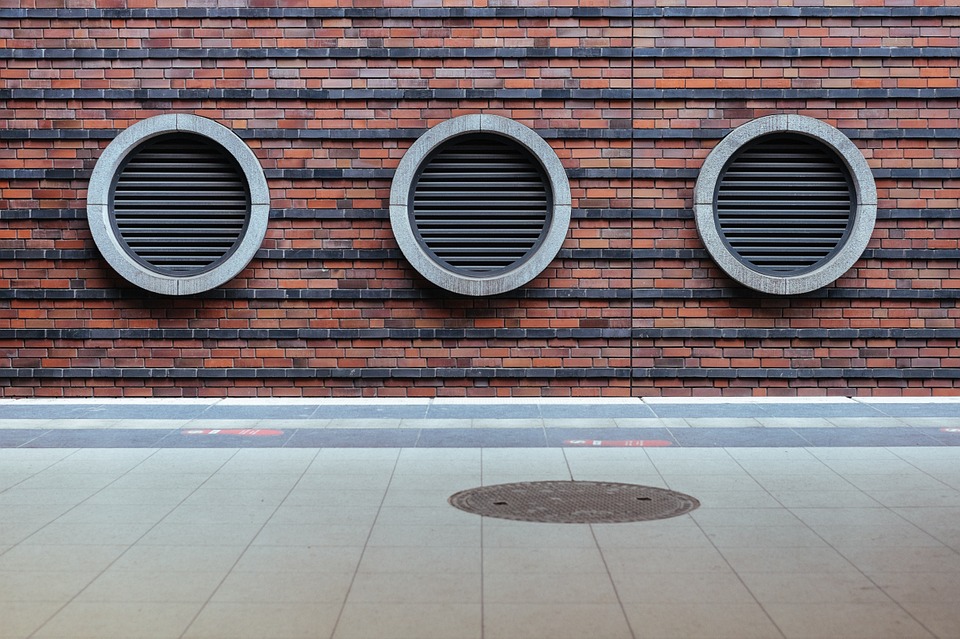The Ultimate Guide on Industrial Ventilation
 A superb industrial ventilation system requires more than the installation of exhaust fans. Sure, a well-functioning system starts with getting rid of stale air and bringing in the fresh one, but there are other ways to optimize your plant and keep the equipment working longer and better. Depending on the kind of work you do, you might require any combination of the following equipment to get an efficient industrial ventilation system.
A superb industrial ventilation system requires more than the installation of exhaust fans. Sure, a well-functioning system starts with getting rid of stale air and bringing in the fresh one, but there are other ways to optimize your plant and keep the equipment working longer and better. Depending on the kind of work you do, you might require any combination of the following equipment to get an efficient industrial ventilation system.
Fans
It’s not enough to buy a fan, however big it is when you want to move air throughout your working space. It’s important to do precise calculations as this helps to know the airflow you require within the area to solve your air or heat quality needs. You also need to consider if your application needs a negative, positive or balanced pressure. Disastrous effects are avoided when you take all these points into account.
Different configurations of propeller pitch, size, and shape maximize the performance of a fan. Additionally, there are various ventilation setups one needs to consider: natural supply/natural exhaust, natural supply/forced exhaust, forced supply/forced exhaust and forced supply/natural exhaust. A qualified and reputable engineer should be in a position to offer a quotation with such considerations in mind.
Louvers
An industrial plant needs to combine a powered exhaust with a gravity ventilation system. In this case, you will be getting air into a building that doesn’t need to have outside elements such as insects, dust or rain to come with the air. In this application, you need to design a system that makes use of inlet louvers.
Dampers
Although dampers resemble louvers, they perform a different function. Dampers allow you to close and open them when you want to regulate the airflow or to stop airflow during an emergency event.
Dehumidifiers
Each time you need to get rid of moisture from the air in your industrial space, consider dehumidifiers. These devices will let you maintain the ideal humidity for all the applications that are moisture sensitive.
Silencers
Silencers are important since they help maintain worker comfort by lowering noise stress levels. Often, ventilation equipment gets noisy, and silencers can provide the much-needed relief from this noise. In some situations, the federal worker regulations necessitate the installation of silencers.
Air filters
Often, air filters are used with silencers but do not filter the noise from the air. Air filters do remove particulates from the air while letting air pass through.
Dust collectors
Dust collectors are similar to air filters, although they are heavy duty. For instance, a cutting application in an industry can cause a lot of metal or dust particulates to enter the industrial atmosphere. A dust collector will pick up the contaminants via a vacuum system and place the air back outside or in the space once the particulates have been removed.
Unique considerations for various facilities
Chemical Plant
When ventilating a chemical plant, you need to consider the chemicals being manufactured and if special materials are to be used. You also need to inform the application engineers if whatever you manufacture is possibly explosive. In case it is, you’ll use devices like fans with explosion proof motors and non-sparkling construction.
Food/Beverage Processing Plant
Two things need to be considered when it comes to a food processing plant:
• The supplied air should be filtered to remove contaminants.
• There needs to be a positive pressure- so when a door opens, the inside air
should flow out so that the outside air doesn’t come in.
If you use a fan, it needs to be made of aluminum or stainless steel or be painted using high-quality paint to avoid corrosion.
Painting Facility
When it comes to painting facilities, the ventilation system should be designed in a way that it’s simple to open the fans up and clean the internals. The place containing curing ovens needs special ventilation attention. Airing experts should be able to help you know if a wall or roof exhauster will be ideal for your plant.
Metal Foundry
This facility often gets very hot quickly. Customarily, large openings on the outside part help to air, allowing the heat to escape. Often, this will not be sufficient. You need to install both the wall and roof fans with motors to handle the heat. The fans should run 24/7.

















